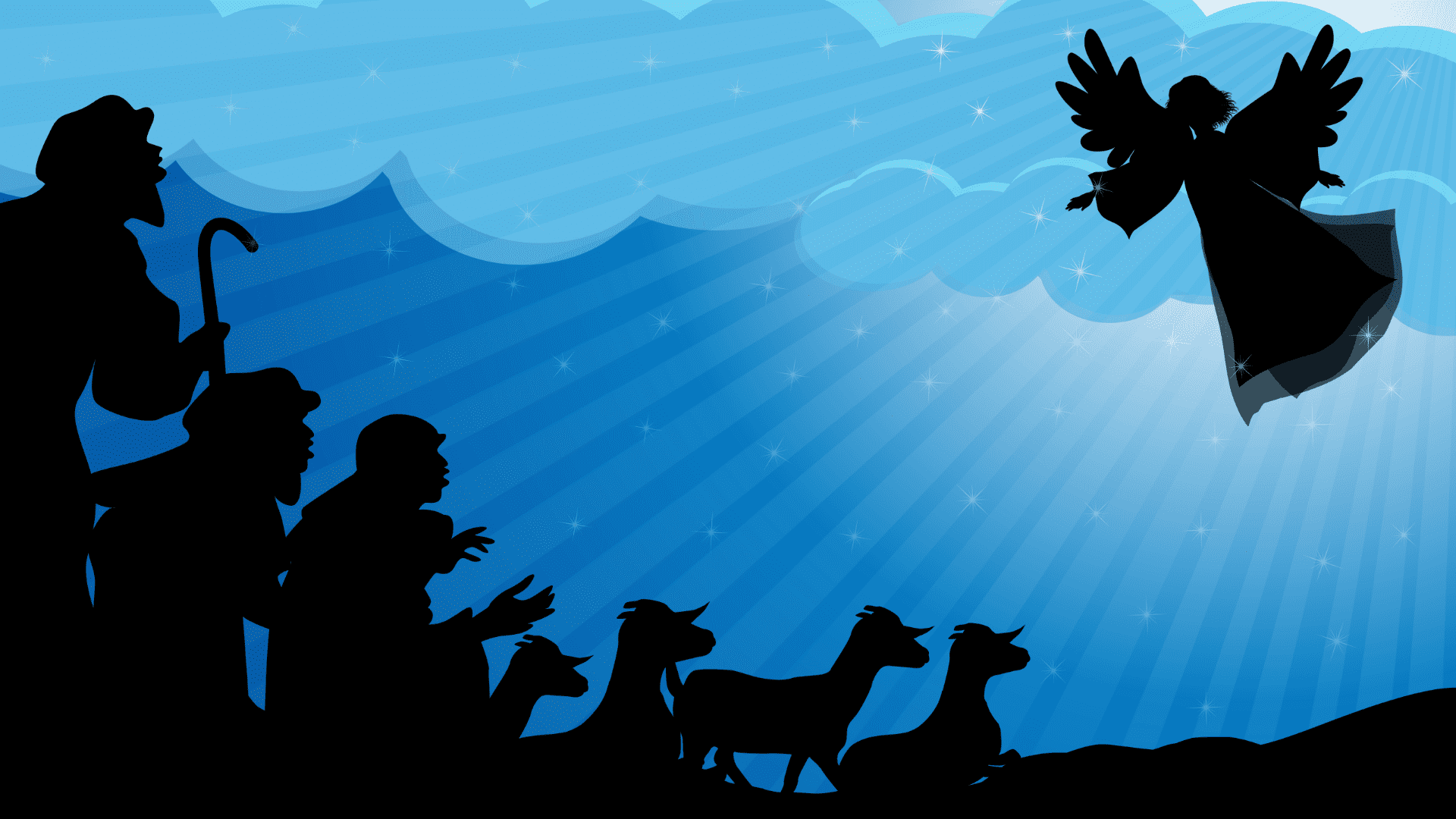Putting Religion in Its Place (Luke 6:1-11)

I want to begin this part of the service by asking you to get together with one or two other people to answer a question. The question is this: What observance or habit do you believe is necessary if you want to follow Jesus? If somebody asked you what you do in your life to follow Jesus, what one or two things would not only make your list, but you couldn’t imagine not doing them?
Some possible answers:
- Going to church
- Reading the Bible
- Prayer times
- Sunday school
- Small group
Now we’re going to put that on the back burner like they do on the cooking shows. We’ll keep this in the back of our minds, and return to it in a few minutes.
Now let me do something a little different, but also interactive. I want to ask you a few questions to determine what the right answer is.
- Toilet paper rolls: over or under?
- Do you wet the toothbrush before you put toothpaste on it, or after?
- Do you take your shoes off at the door, or wear them in the house?
- Do you eat with a knife and fork or just a fork?
- Do you open presents on Christmas Eve or Christmas morning?
I can see we are going to have a church split over some of these issues.
One more question: which of these questions are important?
Would you agree that things that really aren’t important can become important to us? Anyone who’s had roommates or gotten married knows that it’s easy to think that we have the right answer to some pretty trivial issues. The sad part is when these trivial issues become important to us.
I’ve discovered that we are generally poor judges at deciding what’s important and what’s not.
Let’s take this up a notch. I think we’d all agree that issues of toilet paper and toothpaste really aren’t important, but that some things are really worth fighting for. Among the things that most of us think are important are the things that we believe God asks us to do. There are some things that are so clear to us, that it’s more than a matter of preference. We believe we’d be letting God down if we didn’t do these things.
The question I want to ask is this: When do these good things, things that we do to serve God, actually become bad things?
Is there ever a time that the things that we listed earlier this morning actually become bad things? Things like:
- Going to church
- Reading the Bible
- Prayer times
- Sunday school
- Small group
To answer this question, I want to look at what Jesus said about the issue. We’re going to look at a passage in which some people insisted on doing some good things that they felt were important to God. Yet according to Jesus, the good things they were doing, things that they thought were important not only to themselves but to God, actually became bad things. The good things got in the way.
There are two incidents in this passage, but one common theme. When we’re done looking at this passage, I want to ask if we are ever in danger of doing the same thing: of allowing good things we do for God to become bad things. If you have your Bibles, let’s look at what happened. It’s found in Luke 6.
What’s the Issue?
The first question I want to ask is, what’s the issue in this passage? What is the good thing that Jesus is going to address in this passage? In one way, it doesn’t matter what the good thing is. What Jesus is going to say about this good thing applies to all good things. They all can potentially become bad things. But it’s important to understand what happened in this passage, because the good thing in this passage was really a big deal. It was a huge deal to these people.
We read in verses 1-2:
One Sabbath Jesus was going through the grain-fields, and his disciples began to pick some heads of grain, rub them in their hands and eat the kernels. Some of the Pharisees asked, “Why are you doing what is unlawful on the Sabbath?”
At first glance, you might think that the issue is that Jesus and his friends were eating grain that didn’t belong to them. That would be a good guess, but it would be wrong. You were actually allowed to do this. Deuteronomy 23:25 says, “If you enter your neighbor’s grain-field, you may pick kernels with your hands, but you must not put a sickle to the standing grain.” So it was quite okay to go through and pick kernels, as long as you only used your hands.
The issue wasn’t that they were stealing grain. The issue was the timing. The Pharisees asked, “Why are you doing what is unlawful on the Sabbath?” Right thing, wrong time.
This has almost zero meaning for us today, because the Sabbath doesn’t rate high on our list of things that are important to God these days. But for these people, the Sabbath was the chief badge that they were God’s people in a hostile world. Out of all the laws that God gave, this made the Ten Commandments, God’s top ten list, right up there with don’t kill or commit adultery. It went back even further, to creation itself. This was a big deal.
They knew the Law off by heart, and they were probably thinking of Exodus 34:21: “Six days you shall labor, but on the seventh day you shall rest; even during the plowing season and harvest you must rest.” Rubbing the kernels counted, so Jesus and his friends were guilty of doing something that violated their understanding of God’s law.
Before we look at how Jesus responded, there’s a second incident in this passage. We read in verses 6 and 7:
On another Sabbath he went into the synagogue and was teaching, and a man was there whose right hand was shriveled. The Pharisees and the teachers of the law were looking for a reason to accuse Jesus, so they watched him closely to see if he would heal on the Sabbath.
Different incident, same issue. This time it wasn’t harvesting and eating on the Sabbath; it was healing on the Sabbath. What was wrong with that? They believed back then that you could help or heal somebody who had a life-threatening disease on the Sabbath day. It was okay to heal somebody if they were keeling over and about to die. This guy? He could wait until the next day. What’s the rush? If Jesus went ahead, he’d be guilty of breaking the Sabbath – not just once but twice.
So there we have the tension. On one hand, a religious group of people who are trying their best to hold to God’s laws the best that they knew how. They weren’t making majors out of minors. They were concerned about something that God had been clear about. They wanted to do the right thing. It was as important to them as any moral issue you could think of today. To break this issue would be, in their understanding, to flagrantly disobey God.
Then, on the other hand, you have Jesus, who doesn’t seem to care. He seems quite ready to completely ignore what God said about the issue. If you were to put white hats and black hats on these two groups, the Pharisees would be wearing the white hats, and Jesus and his friends would be wearing the black hats.
When Good Things Become Bad Things
What do you do when Jesus seems to be doing the bad thing? My guess is that you look for a clue to see if the bad thing was really a bad thing. The clue comes for us in the second incident. Here’s how we’ll know if Jesus is doing the right thing. Remember that at this point they don’t know who Jesus is, except that he’s a religious leader. So here’s a test: if he can heal a man on the Sabbath day, it must mean that God approves, because the power to heal comes from God. If Jesus can’t heal on the Sabbath day, it means that God is not happy, because Jesus is doing the wrong thing.
So what happens when Jesus goes to heal this man? Let’s read verses 8 to 10:
But Jesus knew what they were thinking and said to the man with the shriveled hand, “Get up and stand in front of everyone.” So he got up and stood there.
Then Jesus said to them, “I ask you, which is lawful on the Sabbath: to do good or to do evil, to save life or to destroy it?”
He looked around at them all, and then said to the man, “Stretch out your hand.” He did so, and his hand was completely restored.
So there you have it. Jesus turns out to be right. This, of course, leads to the next question: what was Jesus right about?
What’s interesting is that Jesus doesn’t say that the Pharisees were wrong about the Sabbath. He doesn’t say that the Sabbath is a bad thing. In fact, he admits that on the surface it seems to be a violation. He says instead that even good things can become bad things sometimes.
It’s interesting that Jesus doesn’t focus on the issue of Sabbath as much as he focuses the issue on himself. In the first incident, when Jesus and his friends picked grain on the Sabbath, Jesus drew a parallel between what he did and an incident that took place in 1 Samuel 21. David had already been anointed king, but he was on the run from Saul, who was still on the throne. Although David had been anointed king, he still looked like a common man, running around with a ragtag group of followers, waiting for his kingship to come true – kind of like Jesus. David did something that he technically shouldn’t have: he ate bread that was reserved only for the priests. The real question isn’t whether or not it was right to do these things on the Sabbath. The real question is, Who is Jesus?
Jesus tells us in verse 5: “Then Jesus said to them, ‘The Son of Man is Lord of the Sabbath.” There’s a bit of a play on words here. Son of Man was one of Jesus’ favorite phrases. On a surface level, it just meant human being. But at another level, Daniel talked about the Son of Man being a divine figure. Jesus uses this term to identify himself as a man, but a different kind of man. He says that he has the authority to abrogate the Sabbath law, redefine it, and reinterpret its significance.
So let’s try to understand what’s happening here. Remember the list of all the things that we listed before? Things that are important, even indispensable, to what it means for us following God? Here’s what Jesus says about these things from this passage:
He doesn’t deny that they are good things – Jesus never denies that the Sabbath is a good thing. He never tells the Pharisees they were wrong to be concerned about the Sabbath.
He claims authority over the good things – Good things are nothing next to Jesus. Jesus has the power to redefine what’s good and what’s bad. Jesus can take anything on this list. He has the right to suspend or reinterpret any law as he sees fit.
He says that even good things can become bad things – Take a look at this list. Even good things can become bad things sometimes. There are two ways that good things can become bad things.
The irony here is that they were trying so hard to keep the Sabbath that they ended up breaking it. Verse 11 says, “But the Pharisees and the teachers of the law were furious and began to discuss with one another what they might do to Jesus.” They were beside themselves with rage. Evidently, it’s wrong to heal a man on the Sabbath, but it’s okay to plot murder.
What I want to do is to look again at the list of things that are on our list. These are modern day equivalents to their Sabbath.
- Going to church
- Reading the Bible
- Prayer times
- Sunday school
- Small group
Do you really believe that even these things can become bad things sometimes? If you’re like me – and like the Pharisees – you have a hard time believing that these good things can become bad things.
It’s possible, Jesus says another time, for our traditions to nullify the Word of God.
Here are two tests to see if these good things are becoming bad things:
When the things we do to serve God get in the way of God – The Pharisees kept the Sabbath to serve God. But keeping the Sabbath made them miss God when he was standing right in front of them. The very thing they did to serve God got in the way of seeing God, of loving him.
Later, there were other things that God asked the church to give up because they were getting in the way – things like circumcision and eating clean food. These were good things, but God asked the church to put them aside.
When things we do to serve God get in the way of loving people – The Pharisees were so concerned with the Sabbath that the didn’t care about the man with the withered hand. They say the issue but they didn’t see the man.
This is dangerous. It’s like the religious people who crossed the road in the parable of the Good Samaritan. There are times that the things we do to serve God get in the way of loving people as we should. Those times, we need to really ask if we are serving God by not loving people, or whether the best thing we can do is to serve God by loving those people.
This reminds us, of course, of The Jesus Creed – loving God and loving others; choosing to love God and others more than the things we do to serve God. It’s a life oriented around God.
If you are task oriented, you’ve probably sometimes been carried away doing tasks for someone that you’ve forgotten the person you’re doing tasks for.
Here’s the list again:
- Going to church
- Reading the Bible
- Prayer times
- Sunday school
- Small group
As important and as good as all of these things are, they are not as important as God. They are never an excuse for not loving others. Loving God and loving others trumps everything on this list.
So, when do good things become bad things? When they get in the way of loving God and loving others.





